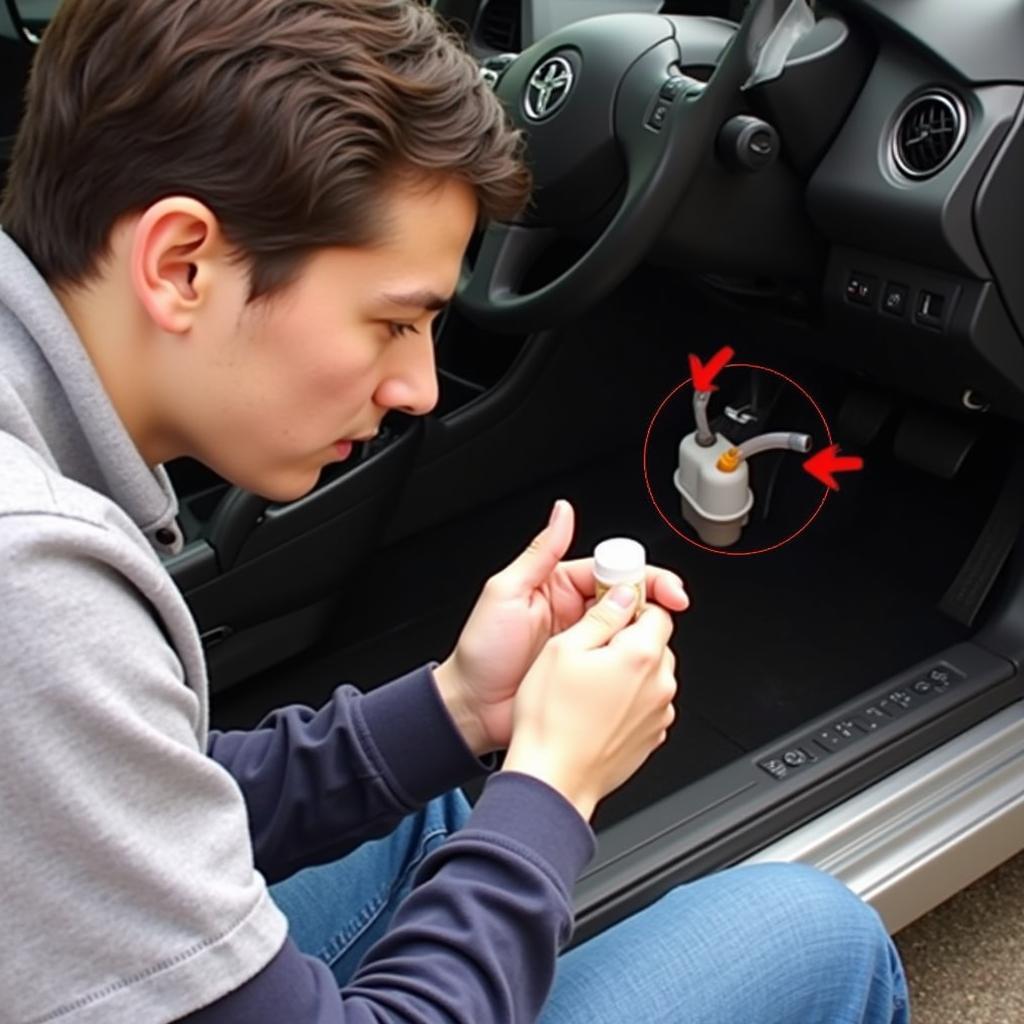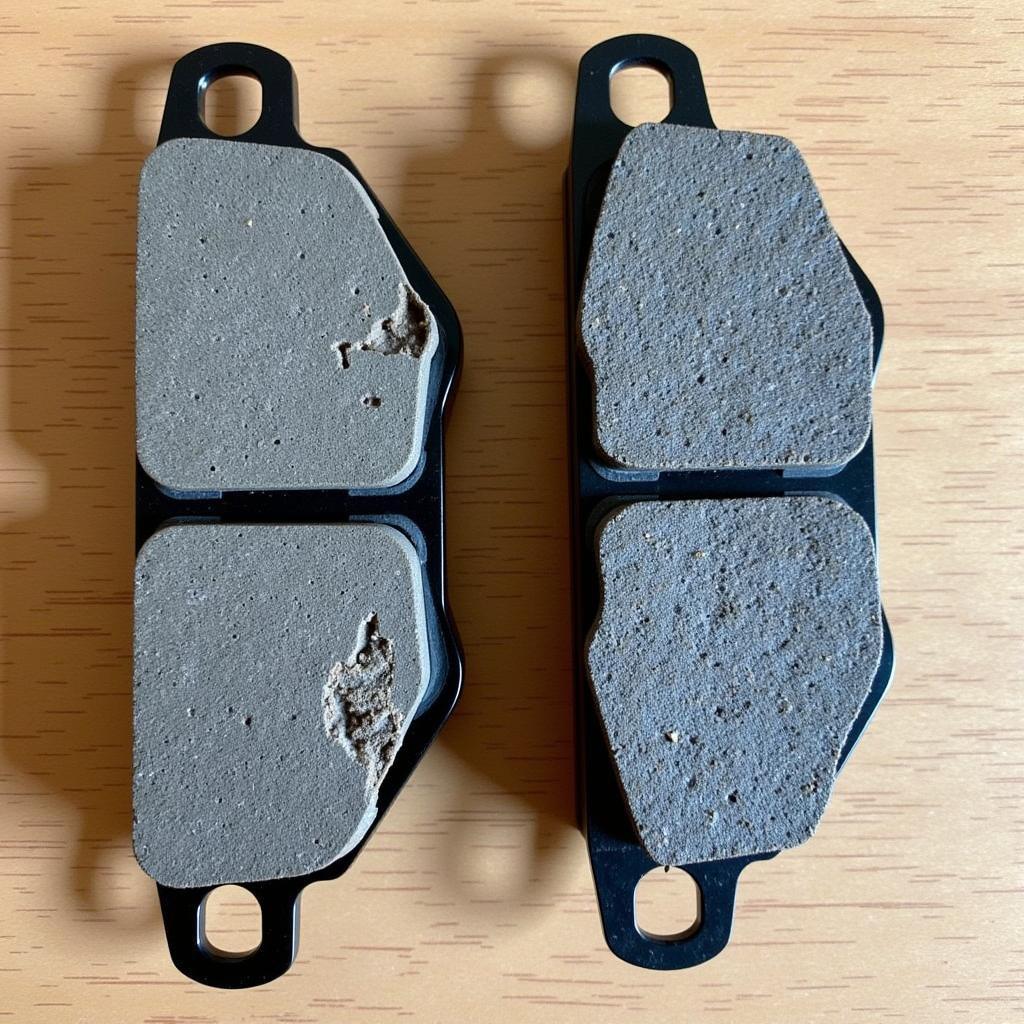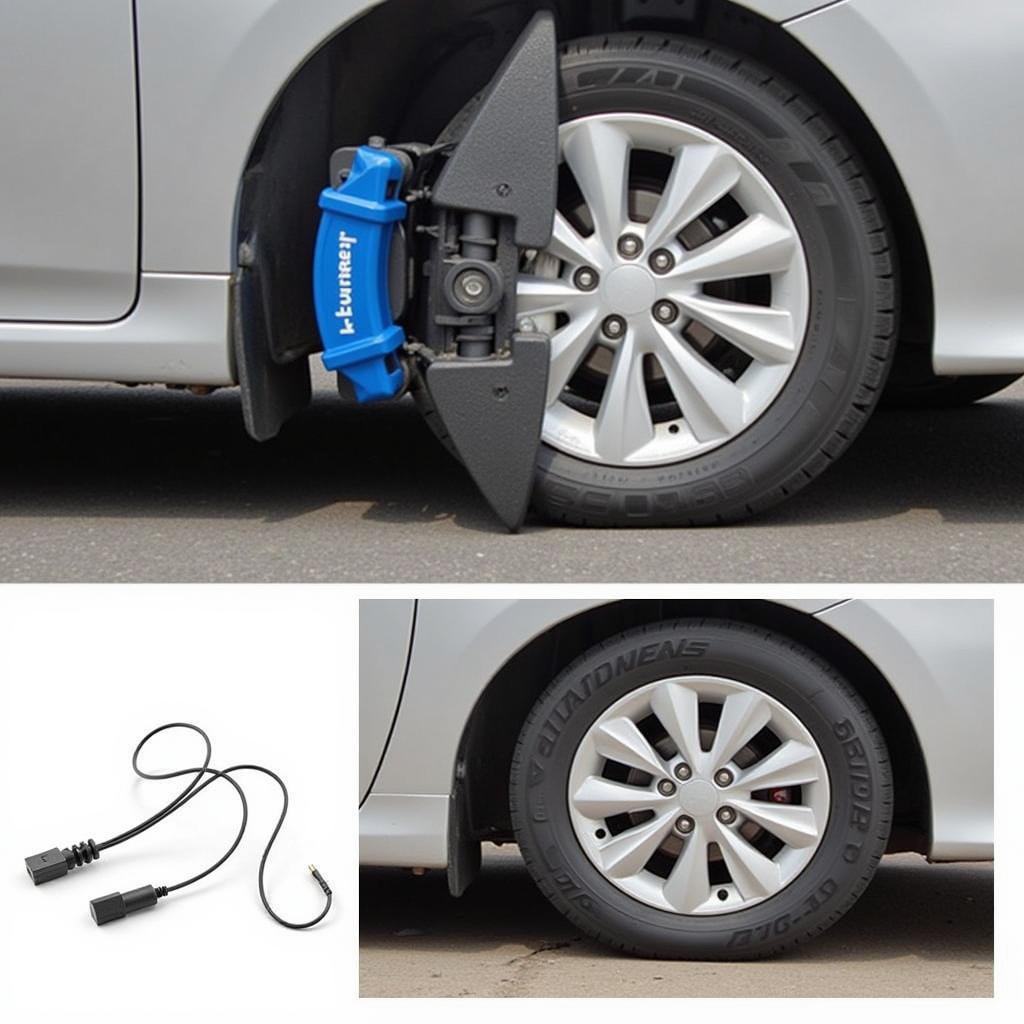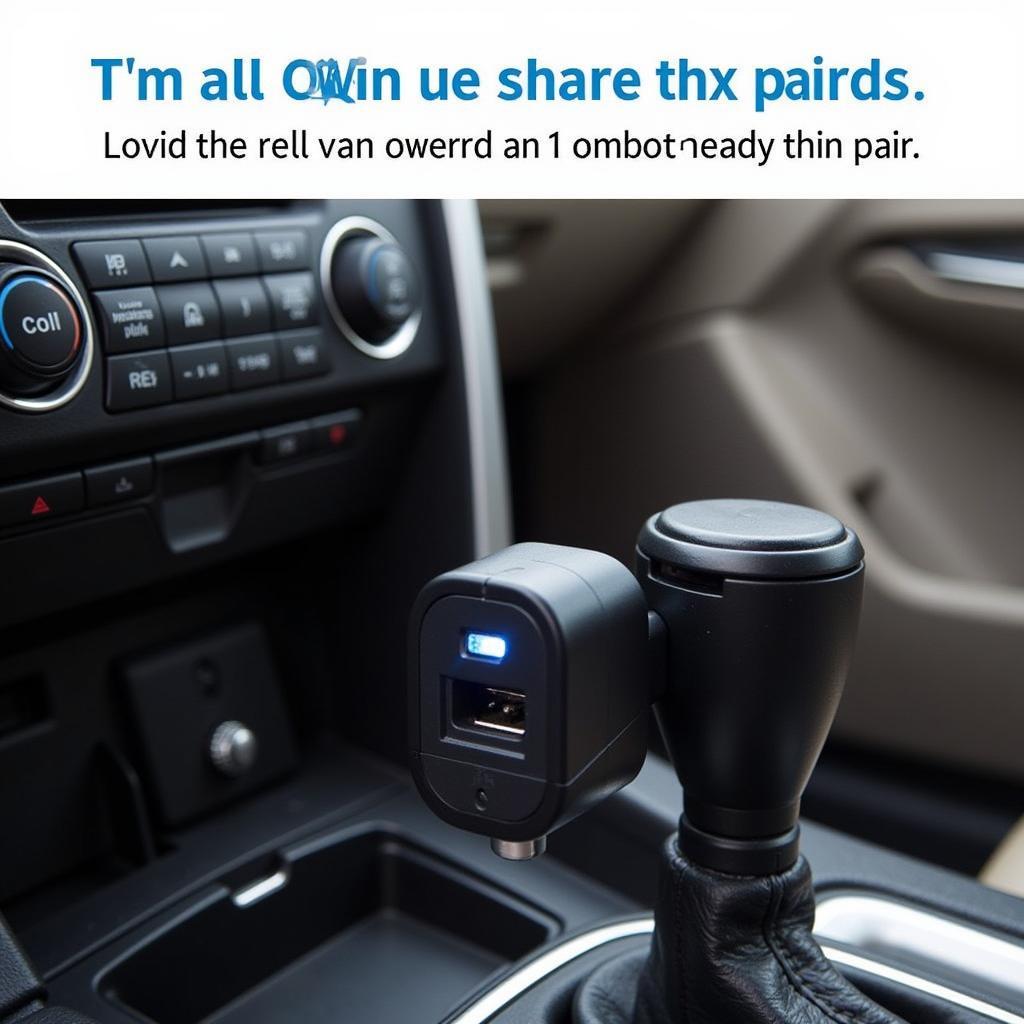The Prius C brake system warning light is a critical safety feature that alerts you to potential problems with your car’s braking system. Ignoring this warning light can compromise your ability to stop safely, putting you and other drivers at risk. This comprehensive guide will delve into the common causes of a Prius C brake system warning light and provide solutions to help you get back on the road safely.
What Does the Prius C Brake System Warning Light Mean?
The brake system warning light, often appearing as a red exclamation mark within a circle, can indicate various issues, including:
- Low Brake Fluid: Brake fluid is the lifeblood of your Prius C’s braking system. A drop in fluid level can significantly reduce braking performance.
- Worn Brake Pads: Brake pads have a finite lifespan. As they wear down, their ability to generate friction and slow down the vehicle diminishes, potentially triggering the warning light.
- Faulty Brake Light Switch: The brake light switch activates your brake lights when you press the pedal. A malfunctioning switch can disrupt this signal and illuminate the warning light.
- ABS Problem: Your Prius C has an Anti-lock Braking System (ABS) for optimal braking during emergencies. Issues within the ABS system can trigger the warning light.
- Other Issues: Less common but equally critical problems such as a faulty brake caliper, damaged brake lines, or a malfunctioning electronic brake-force distribution system can also activate the warning light.
What to Do When Your Prius C Brake System Warning Light Turns On
If your brake system warning light illuminates, it’s crucial to take immediate action:
- Safely Pull Over: Find a safe location to pull over as soon as possible. Avoid sudden braking if possible.
- Check Your Brake Fluid: With the engine off, carefully open the brake fluid reservoir under the hood. If the fluid level is low, adding more might temporarily address the issue, but it’s still crucial to have your car inspected by a qualified mechanic to identify the source of the leak.
- Inspect Your Brake Lights: Have someone observe while you press the brake pedal. If your brake lights aren’t working, the brake light switch might be faulty and needs replacement.
- Call a Mechanic: Unless you have experience with car repair, it’s best to have a certified mechanic diagnose and fix the problem.
 Checking Prius C Brake Fluid
Checking Prius C Brake Fluid
Common Causes and Solutions for Prius C Brake System Warning Light
Let’s dive deeper into some common culprits behind a Prius C brake system warning light:
1. Low Brake Fluid
Cause: A leak in the brake lines, hoses, or calipers can lead to a loss of brake fluid, triggering the warning light.
Solution:
- Identify the Leak: A mechanic will inspect the entire brake system to pinpoint the leak’s source.
- Repair or Replace: Leaky components, such as brake lines or calipers, need immediate repair or replacement.
Pro Tip: “Regularly checking your brake fluid level and looking for signs of leaks, such as puddles of fluid under your car, can help you address this issue before it becomes critical,” advises John Miller, a certified master mechanic with over 20 years of experience.
2. Worn Brake Pads
Cause: Brake pads wear down over time due to friction. Excessively worn pads can trigger the warning light.
Solution:
- Inspect Brake Pad Thickness: A mechanic will measure your brake pad thickness to assess their condition.
- Replace Worn Brake Pads: If the pads are worn beyond a safe limit, they need to be replaced.
 Worn Brake Pads on a Prius C
Worn Brake Pads on a Prius C
3. Faulty Brake Light Switch
Cause: A malfunctioning brake light switch can disrupt the signal that activates your brake lights when you press the pedal, leading to the warning light coming on.
Solution:
- Test the Switch: A mechanic will test the brake light switch for continuity and functionality.
- Replace the Switch: A faulty switch needs replacement to ensure your brake lights function correctly.
4. ABS Issues
Cause: Problems within the ABS system, such as a faulty sensor or a malfunctioning control module, can trigger the brake system warning light.
Solution:
- Diagnose with a Scanner: A mechanic will use a specialized scanner to retrieve diagnostic codes from the ABS system, pinpointing the issue.
- Repair or Replace Faulty Components: Depending on the diagnosis, the mechanic will repair or replace the faulty ABS components.
 Prius C ABS Sensor
Prius C ABS Sensor
5. Other Potential Issues
Cause: Although less common, other potential culprits can include a faulty brake master cylinder, damaged brake lines, or problems with the electronic brake-force distribution system.
Solution:
- Thorough Inspection: A qualified mechanic will conduct a comprehensive inspection to identify the root cause.
- Repair or Replacement: Depending on the diagnosis, the mechanic will repair or replace the faulty component.
FAQs: Prius C Brake System Warning Light
1. Can I drive my Prius C with the brake system warning light on?
It’s strongly advised against driving with the brake system warning light on. This light indicates a potential problem that could compromise your braking ability.
2. How much does it cost to fix a Prius C brake system warning light issue?
The cost of repair varies widely depending on the underlying problem. A simple brake light switch replacement could cost under $100, while a more complex ABS module replacement could exceed $1000.
3. How often should I check my Prius C brake fluid?
It’s recommended to check your brake fluid level at least once a month and top it off if necessary.
4. Can I add any brake fluid to my Prius C?
No, it’s crucial to use the correct type of brake fluid recommended by Toyota for your Prius C. Using the wrong fluid can damage your braking system.
5. How often should I get my Prius C brakes inspected?
It’s a good practice to have your brakes inspected by a qualified mechanic at least once a year or every 12,000 miles.
Conclusion
Addressing a Prius C brake system warning light promptly is crucial for ensuring your safety and the well-being of others on the road. While some fixes might be straightforward, always err on the side of caution and consult with a qualified mechanic for diagnosis and repair, especially for complex systems like ABS. Regular maintenance, including brake fluid checks and timely brake pad replacements, goes a long way in preventing unexpected brake system issues.

